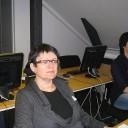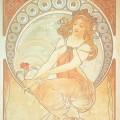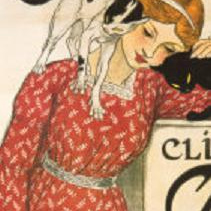Klikk på en bok for å legge inn et sitat.
Viser 1 til 2 av 2 sitater
As I had failed in my efforts to think without recourse to language, I assumed that this was an exact equivalent of reality; I was encouraged in this misconception by the grown-ups, whom I took to be the sole depositaries of absolute truth: when they defined a thing, they expressed its substance, in the sense in which one expresses the juice from a fruit. So that I could conceive of no gaps into which error might fall between the word and its object; that is why I submitted myself uncritically to the Word, without examining its meaning, even when my circumstances inclined me to doubt its truth. Two of my Sirmione cousins were sucking sticks of candy-sugar: ‘It’s a purgative’, they told me in a bantering tone: their sniggers warned me that they were making fun of me; nevertheless the word they had used incorporated itself into my mind with the sticks of candy-sugar; I no longer liked them because they now seemed to me a dubious compromise between sweet and medicine.
No one would take me just as I was, no one loved me; I shall love myself enough, I thought, to make up for this abandonment by everyone. Formerly, I had been quite satisfied with myself, but I had taken very little trouble to increase my self-knowledge; from now on, I would stand outside myself, watch over and observe myself; in my diary I had long conversations with myself. I was entering a world whose newness stunned me. I learned to distinguish between distress and melancholy, lack of emotion and serenity; I learned to recognize the hesitations of the heart, and its ecstasies, the splendor of great renunciations, and the subterranean murmurings of hope. I entered into exalted trances, as on those evenings when I used to gaze upon the sky full of moving clouds behind the distant blue of the hills; I was both the landscape and its beholder: I existed only through myself, and for myself… My path was clearly marked: I had to perfect, enrich and express myself in a work of art that would help others to live.









































